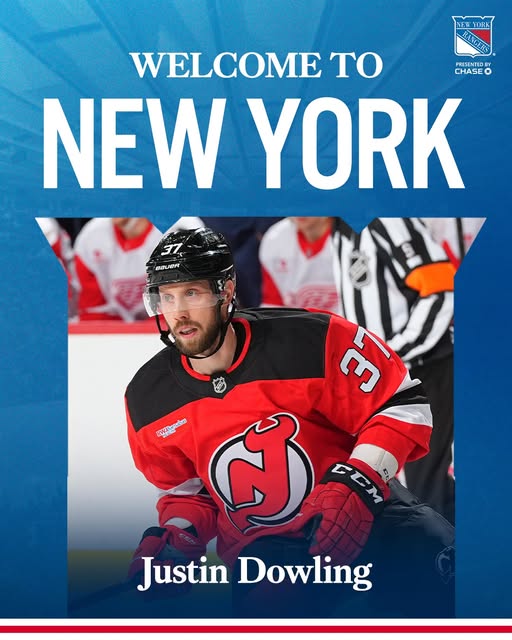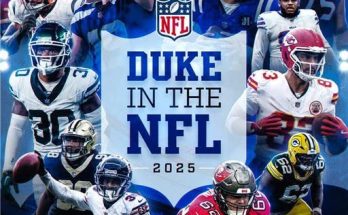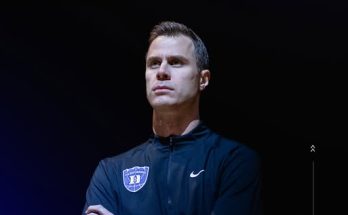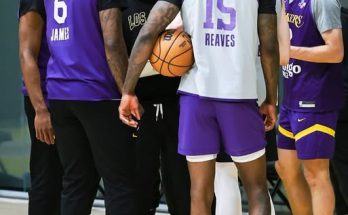In a move that speaks volumes about both strategic depth and long-term roster development, the New York Rangers have officially agreed to terms with forward Justin Dowling on a two-year contract. While Dowling is not a household name among the star-studded ranks of the NHL, this acquisition represents a layered and calculated decision by the Rangers’ front office, one that could carry quiet significance over the course of the next two seasons. At 33 years old, Dowling is a veteran who has seen every inch of the professional hockey map—from AHL dominance to NHL call-ups and international competition. His career arc is not that of a headline-grabbing superstar, but rather of a reliable, hard-nosed competitor whose presence improves teams in ways the box score rarely captures.
Dowling’s story is one of perseverance, grit, and continuous adaptation. Undrafted out of junior hockey, he began his professional career with the Abbotsford Heat in the AHL, a journey that would later take him to the Texas Stars where he played a pivotal role in their 2014 Calder Cup championship. Throughout his AHL tenure, Dowling built a reputation as a cerebral two-way forward, capable of anchoring a line, winning key faceoffs, and providing offensive support when needed. His play earned him multiple stints in the NHL, notably with the Dallas Stars and Vancouver Canucks. While he never stuck on a top line in the big leagues, his role as a dependable depth forward made him a valuable asset in locker rooms, especially during periods of injury or roster flux.
The Rangers’ decision to offer Dowling a two-year deal likely stems from a mix of immediate need and future-proofing. With the wear and tear of an 82-game season and the volatility that comes with injuries, travel, and performance slumps, NHL teams are constantly looking for insurance policies that bring more than just raw talent—they look for experience, professionalism, and on-ice intelligence. Dowling checks all of those boxes. His utility across all three forward positions means he can step in wherever needed without disrupting chemistry or game plans. Moreover, his track record suggests he’s the type of player who makes linemates better, even if he’s not filling highlight reels nightly.
In the modern NHL, depth is king. As playoff contenders consistently find, it’s often the third and fourth lines that tilt series in their favor. While superstars capture the headlines, it’s the utility forwards—the grinders, the puck retrievers, the penalty killers—who often deliver the intangible performances that win close games. Dowling has built his career on exactly those kinds of contributions. His work ethic, positional awareness, and ability to remain composed under pressure are traits that translate well into postseason hockey. Though his recent seasons have seen more time in the AHL than the NHL, his leadership qualities have not gone unnoticed. In fact, Dowling served as an alternate captain for the Calgary Wranglers last season, helping to guide a young roster through the rigors of the AHL schedule.
For the Rangers, this signing also dovetails with their broader developmental objectives. With a young core of forwards such as Will Cuylle, Brennan Othmann, and Adam Sýkora vying for full-time NHL roles, having a seasoned veteran like Dowling in the mix adds a stabilizing influence. He can serve as a mentor both on and off the ice, sharing insights about preparation, in-game adjustments, and the mental side of being a professional athlete. That kind of mentorship is invaluable, especially for players transitioning from junior or European leagues into the North American pro system. Dowling’s calm demeanor and extensive experience give him the tools to be a quiet leader within the Rangers’ organization, whether he spends more time in Hartford or at Madison Square Garden.
One should also consider the contract structure itself. A two-year deal provides both flexibility and a vote of confidence. It suggests the Rangers see Dowling not as a mere stopgap, but as a piece with the potential to play a consistent role over multiple seasons. The contract may be two-way in nature—meaning Dowling could bounce between the NHL and AHL depending on need—but that doesn’t diminish its importance. In fact, such contracts are often the connective tissue that holds a season together when injuries mount or rookies falter. Having a player of Dowling’s caliber ready to step in on short notice offers the coaching staff a level of security that statistics alone can’t quantify.
Additionally, the timing of the signing is notable. Coming during an offseason filled with salary cap puzzles and long-term planning, every roster decision carries heightened significance. By locking in a versatile depth forward early, the Rangers demonstrate their commitment to building a complete and balanced team. With top-heavy contracts already on the books for marquee names like Artemi Panarin, Mika Zibanejad, and Adam Fox, finding cost-effective, dependable contributors is not a luxury—it’s a necessity. Dowling, with his modest salary expectations and high utility, fits this mold perfectly.
Another dimension to consider is the culture fit. The Rangers under head coach Peter Laviolette are expected to blend high-octane offense with responsible two-way play. That means every player, from top-line scorers to fourth-line grinders, must buy into the system and execute their role with discipline. Dowling’s career to this point has been defined by exactly that kind of buy-in. He may not be flashy, but he is fundamentally sound, coachable, and tactically aware. These qualities make him an ideal candidate to earn the trust of Laviolette and the Rangers’ coaching staff. Whether he’s called upon for penalty-killing duties, late-game defensive zone faceoffs, or simply to set a professional tone at practice, Dowling is the type of player who can be counted on to deliver.
For fans, the signing may fly under the radar. But those who follow the game closely understand the value of a deep and experienced bench. In many ways, Dowling represents the beating heart of team-first hockey—a player who doesn’t demand attention but commands respect through his work ethic and quiet excellence. Over the course of a long season, those qualities are often what separates playoff-bound teams from those that fall short. Injuries, travel fatigue, and slumps affect every team. The organizations that manage those variables the best often have players like Dowling in their locker rooms.
As the Rangers look to build on recent postseason appearances and aim for a deeper run toward the Stanley Cup, small additions like this can make a big difference. The flashy signings and big-ticket trades always dominate headlines, but championships are won through attention to detail. Every practice rep, every road trip, every healthy scratch who’s ready to step in—these are the moments where a team’s culture and resolve are tested. Dowling’s presence enhances that infrastructure, reinforcing the team’s commitment to professionalism, resilience, and adaptability.
While it remains to be seen how much NHL ice time Dowling will receive over the next two seasons, his impact will likely be felt in subtle but important ways. Whether anchoring a line in Hartford, mentoring young prospects, or stepping into the Rangers’ lineup during a critical injury stretch, he embodies the kind of player every contending team needs in its arsenal. His signing is a reminder that hockey is a team sport in the truest sense—a game won not just by stars, but by the sum of its parts.
In the end, Justin Dowling’s journey to New York is not just a personal milestone, but a microcosm of what makes the sport beautiful. It’s about opportunity meeting preparation, about the pursuit of excellence without entitlement. For the Rangers, bringing in a player with Dowling’s pedigree and approach strengthens the fabric of the organization. And for Dowling himself, it represents another well-earned chapter in a career defined by perseverance and purpose. The games may not have started yet, but this quiet transaction has already set the tone for a season where every detail could matter—and where players like Dowling often make the difference between a good team and a great one.



